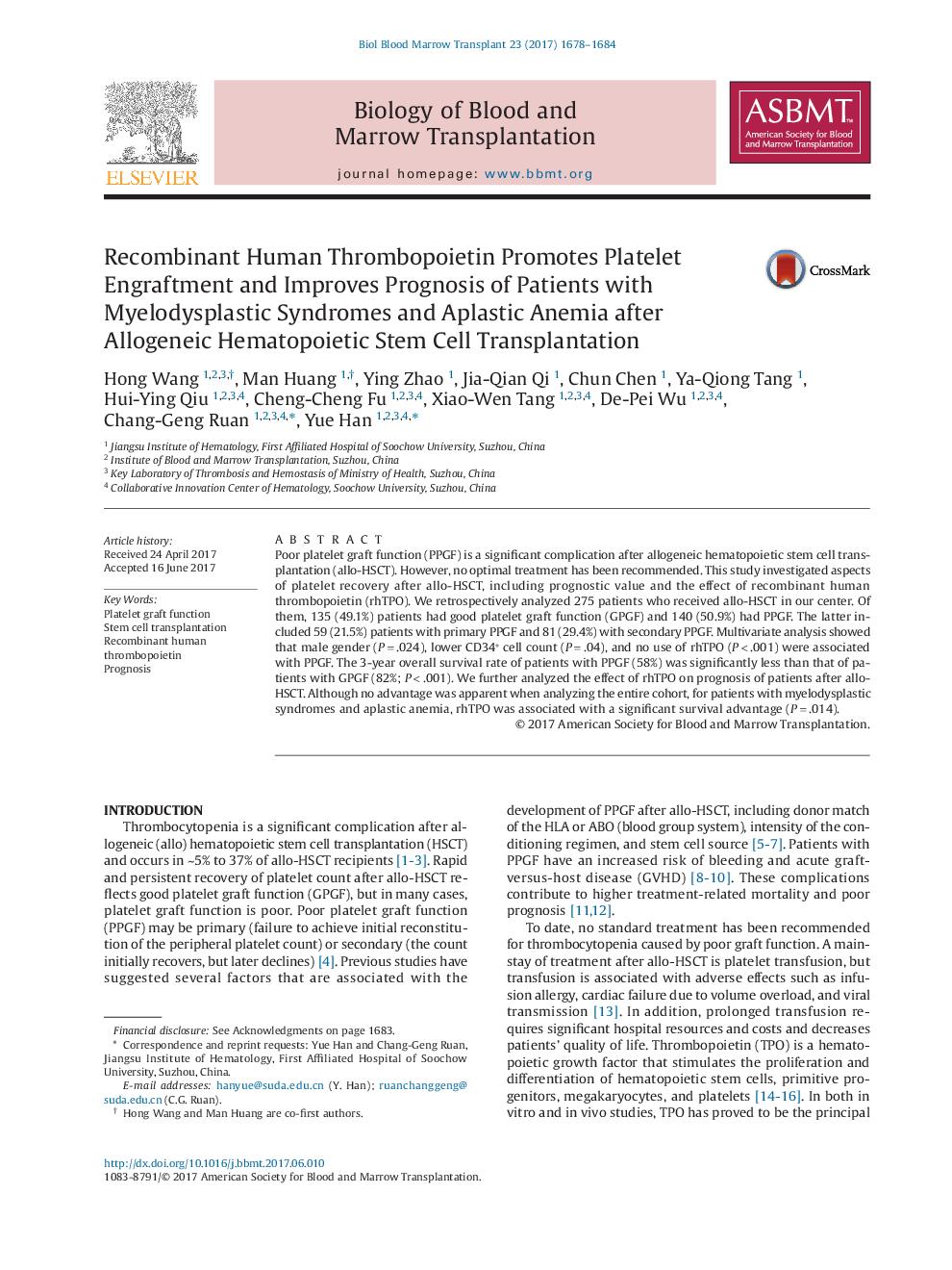| Article ID | Journal | Published Year | Pages | File Type |
|---|---|---|---|---|
| 5524053 | Biology of Blood and Marrow Transplantation | 2017 | 7 Pages |
â¢Recombinant human thrombopoietin promotes platelet engraftment in patients after allogeneic hematopoietic stem cell transplantationâ¢The 3-year overall survival rate of patients with poor platelet graft function was significantly less than that of patients with good platelet graft functionâ¢In patients with myelodysplastic syndromes or aplastic anemia, recombinant human thrombopoietin was associated with a significant survival advantage
Poor platelet graft function (PPGF) is a significant complication after allogeneic hematopoietic stem cell transplantation (allo-HSCT). However, no optimal treatment has been recommended. This study investigated aspects of platelet recovery after allo-HSCT, including prognostic value and the effect of recombinant human thrombopoietin (rhTPO). We retrospectively analyzed 275 patients who received allo-HSCT in our center. Of them, 135 (49.1%) patients had good platelet graft function (GPGF) and 140 (50.9%) had PPGF. The latter included 59 (21.5%) patients with primary PPGF and 81 (29.4%) with secondary PPGF. Multivariate analysis showed that male gender (Pâ=â.024), lower CD34+ cell count (Pâ=â.04), and no use of rhTPO (Pâ<.001) were associated with PPGF. The 3-year overall survival rate of patients with PPGF (58%) was significantly less than that of patients with GPGF (82%; Pâ<.001). We further analyzed the effect of rhTPO on prognosis of patients after allo-HSCT. Although no advantage was apparent when analyzing the entire cohort, for patients with myelodysplastic syndromes and aplastic anemia, rhTPO was associated with a significant survival advantage (Pâ=â.014).
